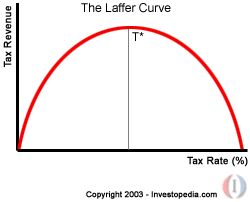Just ask a conservative if the war in Iraq was a good idea.
(image from the Orange County Register)
But this is not the same thing as subjectivism. There IS (in my subjective judgement) an objective reality within which we exist. To the extent our subjective views vary from objective reality, we're liable to be corrected, sometimes very sharply.
A good example of this is seen in Marxism-Leninism, from the last century. Marxists believed that they had discovered objective laws of history describing social change over time. This shared ideology, in the process described by the minimal group paradigm, gave birth to a community. That community, in the process described by group dynamics divided into elite and mass members. The mass members (as in every community) looked to elites to articulate the group's values, to prescribe group action, AND TO INTERPRET THE OUTCOME OF THOSE ACTIONS.
(This and unlabeled images from Wikimedia Commons)
This is an almost completely self-contained subjective reality; a good example from this century might be the Tea Party movement. Only their leaders will tell them the truth, those leaders tell them what they should do, and those leaders assure them THAT THOSE ACTIONS WERE SUCCESSFUL. And of course, that the actions of others failed.
But objective reality "always bats last". The "sharp correction" experienced by the few remaining Marxists of the last century was the collapse of the Soviet Union, in complete contradiction to what they believed were immutable laws of history. There was simply no credible way for elites within the Marxist community to spin the demise of a political entity they had previously asserted to be the inevitable next step for all human societies.
So objective reality serves as a long-term check on the subjective realities created by the groups with which we identify. But as Keynes observed, "in the long run, we're all dead." Waiting for catastrophic policy failure seems like a dangerous way in which to evaluate the merit of an idea.
Fortunately, there is a quicker and less risky way in which to evaluate the policy assertions of elites, both those with whom we agree and those who in-group bias tell us are lying charlatans.
It's called the scientific method.
Elites who are telling us something need to be forced to predict what will happen next. If their model of reality is relatively accurate, those predictions will be correct. If their model of reality is inaccurate, their predictions will be incorrect...
and the elite in question will immediately start offering excuses about why their predictions were wrong. Or why being wrong doesn't undermine their model. Or torturing the data so as to demonstrate that like Obi wan Kenobi, what they said was true, "from a certain perspective".
(image from wookieepedia)
Hence, when forcing elites to generate falsifiable predictions about what happens next, it's critical to also force them to agree to specific metrics. It's not enough to to get them to say "that will create jobs". One must force them to tell us HOW many jobs, by when.
This does NOT mean that whenever someone is wrong in their predictions, they should be dismissed. Sometimes (usually) people are wrong. There's no shame in presenting an erroneous hypothesis, and a critical part of the scientific method is correcting one's hypotheses to account for new data.
But group elites who are consistently, wildly wrong in their predictions, and who habitually change the metrics in order to make those predictions appear accurate...
CAN be dismissed. Looking at you, supply-siders.
(image from investopedia.com)




No comments:
Post a Comment